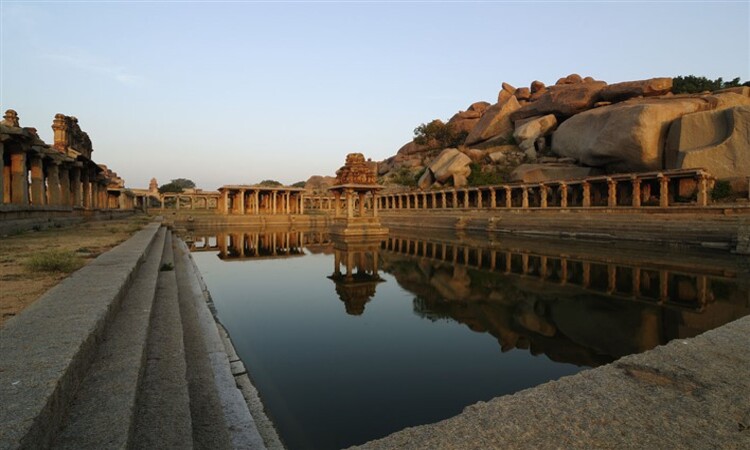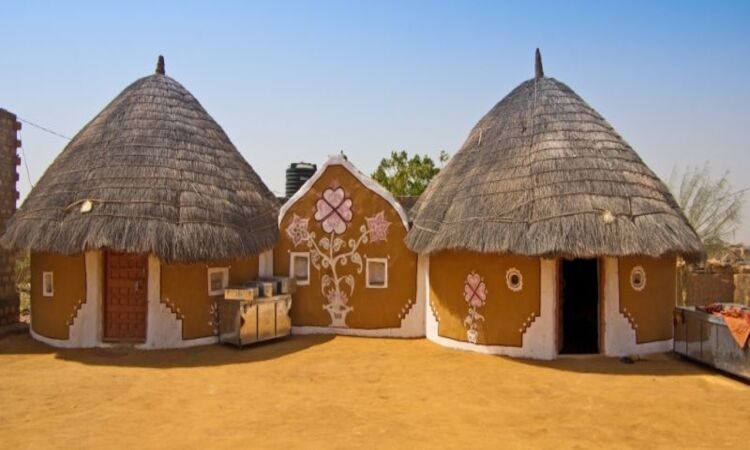All across the world, rural tourism is an essential part of the tourism industry. From treks across hills to hikes across lush green forests, many countries rely on rural tourism to supplement their local economies.
Generally, any form of tourism that occurs mainly outside city limits can be defined as rural tourism. Sustainable tourism and eco tourism also include rural tourism, since it is closely linked with exploring green spaces and activities such as trekking and camping.
And India is one of the most notable destinations for rural tourism across the world. In recent years it has significantly increased in popularity, attracting both foreign and local tourists.
While many big Indian cities have significantly been influenced by international cultures, the indigenous traditions of India are still deeply routed in its villages. And here are some of the best rural destinations in India.
Anegundi, Karnataka
Situated in Karnataka’s Koppal region, the cosy little village of Anegundi is further beautified by rice fields and banana plantations. The village is surrounded by the Tungabhadra River on one side and hills on three other sides. While it has been overshadowed by Hampi in recent years, it was once, in fact, the original capital of the Vijayanagara Empire.

(Image Credit: karnataka.com)
The village is an important historical site and its temples and monuments are preserved and protected by the Archaeological Survey of India and is also an important world heritage site. One notable attraction here is the Anegundi Fort which is highly popular among tourists.
There are many captivating stories associated with this village that date back to the time of the Ramayana. Anegundi has often been identified with Kishkinda the legendary kingdom of monkeys and you can look forward to some engaging local tales during your visit.
Today, the village is also well known for its unique sustainable local handicrafts that are made largely from discarded agricultural waste. This cottage industry is completely run and manned by the local women of the village.
Getting Here (Nearest Railway Station - Hospet)
- 12650 | YPR SAMPARK KRT - Delhi (NZM) To Hospet (HPT)
- 16533 | JU SBC EXP - Mumbai (KYN) To Hospet (HPT)
- 18047 | AMARAVATI EXP - Kolkata (SHM) To Hospet (HPT)
Puttur, Andhra Pradesh
This tiny hamlet in Andhra Pradesh is traditionally renowned for the ancient therapeutic practice of bone setting. Bone-setting refers to a kind of folk medicine in which practitioners engage in joint manipulation. Before the arrival of modern alternative therapies such as chiropractic and osteopathy, bone setters were the main providers of any kind of physiotherapy in the subcontinent.
Besides bone-setting, the village is popular for mangroves, agriculture, and a thriving silk manufacturing business. Many of the locals are involved with various aspects of the weaving of silk sarees. While enjoying a grand tour of the process of making silk sarees, visitors are also sure to be charmed by the warm hospitality of the villagers along with its numerous temples.
Getting Here (Nearest Railway Station - Mangalore)
- 12432 | TVC RAJDHANI - Delhi (NZM) To Mangalore (MAJN)
- 12133 | MANGALURU EXP - Mumbai (CSMT) To Mangalore (MAJN)
- 12685 | MAS MAQ EXP - Chennai (MAS) To Mangalore (MAJN)
Bishnoi Village, Rajasthan
Bishnoi Village is probably one of the oldest tourist attractions of India and has been so since the days of the kingdoms and princely states of India. It is located around 22 kilometres from Jodhpur, which is another famous tourist destination in Rajasthan where the village is located.

(Image Credit: Memphis Tours)
The local community who are known to be very simple by nature but with a keen interest to learn. They are also well-known for their reverence for nature and the conservation of their surroundings and wildlife. Among the indigenous wild animals, the blackbuck is considered to be highly sacred by the community.
The village is located in the western Thar desert which is home to many wild animals such as chinkaras and black bucks and wild birds such as bustards and partridges. Some of the temples of the village double up as rescue and veterinary centres for domestic and wild animals. Donations are made regularly to these temples to aid them in this purpose.
Tourists at Bishnoi Village will be able to witness its various artisans such as potters and weavers as they carry out their handiwork. They are most happy to share their culture with visitors through stories as well as their indigenous arts and crafts.
Getting Here (Nearest Railway Station - Jodhpur)
- 22995 | MANDORE EXPRESS - Delhi (DLI) To Jodhpur (JU)
- 12480 | SURYANAGARI EXP - Mumbai (BDTS) To Jodhpur (JU)
- 12307 | HWH JU EXPRESS - Howrah (HWH) To Jodhpur (JU)
Majuli, Assam
Reputed to be the largest river island in the world, Majuli is also an excellent place to get a peek into the lives of both rural and tribal people in northeast India. It is home to various communities of Assam such as the Mising, Sonowal Kacharis, and Deoris.
Visitors to the island will be transported to a different world where life is simpler and everything is done by hand. The landscape of the island is characterized by natural beauty, diverse wildlife, and complete serenity. All of the locals are usually dressed in very colourful attire and are very friendly. You will also see many of the locals busily engaged in the ancient art of hand-looming.
Majuli also attracts a large number of pilgrims who come to pay homage to the many satras on the island. These are Vasihnavite religious centres where prayers are held, plays are performed, and knowledge is imparted.
Getting Here (Nearest Railway Station - Mariani)
- 12424 | DBRT RAJDHANI - Delhi (NDLS) To Mariani (MXN)
- 15945 | LTT DIBRUGARH EX - Mumbai (LTT) To Mariani (MXN)
- 15959 | KAMRUP EXPRESS - Howrah (HWH) To Mariani (MXN)
Hodka Village, Gujarat
Located in the Kutch region of Gujarat, Hodka Village is 63 kilometres from Bhuj. The name of the village is derived from the word ‘hodi’ which means boat in Gujarati. Hodka is well renowned for its arts and crafts, with each village having its signature patterns and designs.
Traditionally girls of the village begin learning embroidery from their early childhood. Over time they learn and hone in skills in various skills such as running stitch, making purses, and embellishing embroidered items with tiny mirrors.
Hodka houses are particularly notable for their unique design and remarkable aesthetic charm. Natural dyes and dung are used by the people of the village to decorate their houses. Moreover, all of the houses are finely painted as well. All of the houses are constructed using mud which is a good material for ensuring that the interiors are kept cool.
Local guides known as bhomiyas take visitors on a tour of the village while also giving them good insights into the lives of the locals. You will also be able to talk to the locals and artisans and learn more about their crafts.
Getting Here (Nearest Railway Station - Bhuj)
- 22830 | SHM BHUJ SF EXP - Kolkata (SHM) To Bhuj (BHUJ)
- 22955 | KUTCH EXPRESS - Mumbai (BDTS) To Bhuj (BHUJ)
- 14321 | BE BHUJ EXPRESS - Delhi (DLI) To Bhuj (BHUJ)
Conclusion
Besides the obvious benefit of taking you away from your bustling life in the city, rural tourism will make it obvious that the true heart of India beats in its villages. A visit to any one of the beautiful is guaranteed to leave a sense of awe and euphoria. Life in rural settings is generally raw and closer to nature giving urban travellers the chance to venture out of their comfort zones.
In India, rural tourism has very promising prospects and also enables villagers to have a good source of income. It also motivates and empowers villagers to revive their lost arts and handicrafts. Not to mention it will allow the city folk of the country to witness and experience a simpler life, if only for just a brief moment.

